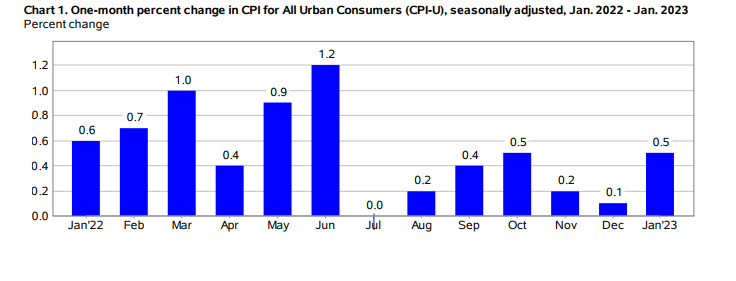From NYC.gov:
Office Adaptive Reuse Task Force of Mayor Adams Unveils Recommendations to Convert Underused Offices into Homes builds on the initiatives of the Adams administration to revitalize central business districts and increase the supply of housing Including 11 Specific Recommendations Office conversions could provide homes for as many as 40,000 New Yorkers over the course of the next ten years if recommendations are put in place alongside existing regulations.
The mayor of New York City, Eric Adams, today unveiled suggestions made by a task force organized by the city to encourage the conversion of vacant office space into new housing for New Yorkers. The New York City Office Adaptive Reuse Study, created by the Office Adaptive Reuse Task Force and headed by Dan Garodnick, Director of the Department of City Planning (DCP) in New York City, offers 11 specific recommendations that would alter state statutes and local zoning regulations in an effort to apply the most flexible conversion regulations to an additional 136 million square feet of office space, or roughly the same amount of space as the entire city of Philadelphia. With these recommendations in place and the current city and state regulations, office conversions could potentially create as many as 20,000 homes in the next decade, enough to house up to 40,000 New Yorkers, even though property owners will decide whether to convert their buildings.
“With this study, we have a roadmap to deliver on a vision for a more vibrant, resilient, prosperous, and affordable city,” said Mayor Adams. “The need for housing is desperate, and the opportunity offered by underused office space is clear — we know what we need to do. These concrete reforms would clear red tape and create the incentives to create the housing we need for New Yorkers at all income levels. I want to thank the members of the task force for helping to chart the course, and I look forward to working with them and our partners in city and state government to deliver these much-needed reforms.” “Enabling more offices to convert to housing will help us bring back our commercial districts while also addressing our housing supply crisis,” said Deputy Mayor for Economic and Workforce Development Maria Torres-Springer. “The recommendations in this report will set us on the path to achieving these critical goals, and I look forward to partnering with our colleagues in Albany and the City Council to ‘Get Stuff Built.’” The study outlines a path forward to deliver on goals outlined in “‘New’ New York: Making New York Work for Everyone,” an action plan released in December by Mayor Adams and New York Governor Kathy Hochul — including reimagining the city’s commercial districts as vibrant 24/7 destinations, making Midtown Manhattan and other business districts more mixed-use and flexible, and expanding the city’s supply of housing. It also builds on Mayor Adams’ “Get Stuff Built,” “City of Yes,” and “Housing Our Neighbors” plans, which include significant steps to tackle the city’s severe housing shortage. Increasing opportunities to repurpose underused office space for housing and other uses is critical to achieving those goals. “After every crisis, New York City reinvents itself, which is why it is so important for our codes and regulations to stay flexible. The Office Adaptive Reuse Task Force recommendations will help us meet the moment and rise to each new challenge with a built environment that is as dynamic and diverse as New Yorkers themselves,” said Chief Housing Officer Jessica Katz. “
To solve our housing shortage, we need every tool possible. Our administration’s housing blueprint, Housing Our Neighbors, calls for leveraging zoning to encourage more affordable and supportive housing citywide, helping families access new neighborhoods with amenities, jobs, and schools close by, which every New Yorker deserves.” “Our ability to remain a global leader in a rapidly evolving and changing economy will depend on our ability to adapt,” said DCP Director and City Planning Commission Chair Garodnick. “Working closely with the City Council and our colleagues in Albany, we will build clear rules and set this city up for success.” Implementing the task force’s recommendations would extend the most flexible conversion regulations to an additional 136 million square feet of office space — roughly the amount of office space in the entire city of Philadelphia. Credit: New York City Mayor’s Office The Office Adaptive Reuse Task Force was convened by the Adams administration in July 2022 following Local Law 43, sponsored by New York City Councilmember Justin Brannan.The task force’s recommendations include: These recommended reforms would be implemented via changes to state law and regulatory changes through a city zoning text amendment.The task force included 12 members with a wide range of experience in architecture, development, economics, finance, law, and advocacy: “From designing the street grid to rebuilding after 9/11, New York City exists in a constant state of evolution and aspiration.
Today, our commercial office buildings offer the opportunity to meet the changing needs of the city, including the critical need for housing,” said HPD Commissioner Adolfo Carrión Jr. “The recommendations from the Office Adaptive Reuse Task Force aim to ensure the city’s built environment keeps us thriving as a city of opportunity.” “It is essential for New York City to be adaptive to the changing needs and dynamics of New Yorkers in this post-pandemic era,” said NYCEDC President and CEO Andrew Kimball. “The recommendations laid out in this report build off those put forth in the ‘Making New York Work for Everyone’ action plan to reimagine 24/7 commercial districts across New York City. These proposals are designed to aid in the transformation of single-use commercial hubs into mixed-use, live-work environments and are necessary to building a more vibrant and inclusive economy for all New Yorkers.” “Outdated regulations that no longer serve their intended purpose are a roadblock to solving some of the most intractable challenges the city is facing today,” said Acting DOB Commissioner Kazimir Vilenchik, P.E. “The necessary changes to the New York State Multiple Dwelling Law and the city’s Zoning Resolution recommended in this study will finally give property owners a pathway to convert their empty office buildings into the housing this city desperately needs. I applaud the task force on their commonsense recommendations to reduce red tape and streamline the conversion process.” “Successfully addressing our city’s dire housing crisis requires creative solutions, and the Council is proud to have passed legislation to create this task force to advance important recommendations for converting underused office space into new housing,” said New York City Council Speaker Adrienne Adams. “Our recovery from the pandemic requires employing concrete tools, flexibility, and thoughtful strategies to create homes for New Yorkers and strengthen our central commercial districts. I look forward to working with the administration and our state partners to confront the housing shortage, ensuring that New York remains an affordable place to live, work, and raise a family for all.”
Borough President Mark Levine. “The task force’s recommendations will help unlock opportunities to turn underutilized office buildings into housing we badly need. I look forward to working with the mayor and Chair Garodnick as we find innovative ways to build more housing and create healthier, more vibrant neighborhoods across the city.” “New York needs to be able to adapt to fully recover from the pandemic and the changes it brought to our society,” said New York City Council Majority Leader Keith Powers. “There is incredible potential in turning unused office space into ways to address our housing crisis and more. I am grateful for the recommendations of this task force and look forward to continuing to partner on our economic recovery.” “New York City is lagging other municipalities in converting office space to housing. That’s why it is so important to take bold steps, right now.” said New York City Councilmember Erik Bottcher. “Our housing shortage poses an existential crisis to New York’s future. I want to thank Mayor Adams and Chair Garodnick for this forward-thinking work.”
Media Contact pressoffice@cityhall.nyc.gov(212) 788-2958

